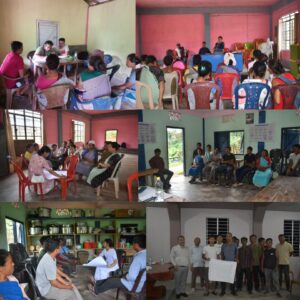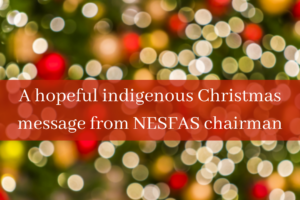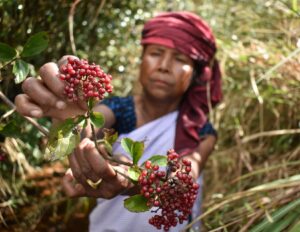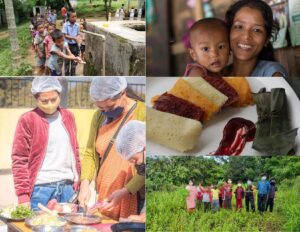 From June 2022 till 2024, NESFAS, in partnership with The Nature Conservancy and the Meghalaya Biodiversity Board (MBB), set up 71 People’s Biodiversity Registers across partner communities in Meghalaya to help strengthen conservation and improve management of local resources and biodiversity.
From June 2022 till 2024, NESFAS, in partnership with The Nature Conservancy and the Meghalaya Biodiversity Board (MBB), set up 71 People’s Biodiversity Registers across partner communities in Meghalaya to help strengthen conservation and improve management of local resources and biodiversity.
The project aided the partner communities in natural resource management initiatives to address conservation of the rich biodiversity around their landscapes which has been sustained by their traditional socio-cultural knowledge and practices. The participatory documentation through the PBR enabled the communities to make sustainable use of their biodiversity, protect their intellectual property, and exercise customary rights over these tangible resources.
Building on the foundation laid down by this initiative, a new project titled, Equitable conservation for climate, biodiversity, and livelihoods in Northeast India funded by The Nature Conservancy commenced in June 2024.
This project represents the next phase of the previous initiative, focusing on the upgradation of 68 additional People’s Biodiversity Registers (PBRs) and the landscape planning and implementation in 71 communities carried over from the previous phase.
The primary objectives include conservation efforts, biodiversity restoration, and improved management practices within the 71 partner villages/communities in Meghalaya, specifically within the Umling and Umsning/Bhoirymbong landscapes.It seeks to focus on planning of natural resource management activities at a local level and mainstreaming of specific activities within local institutional systems. This is specifically being targeted to help bring about self-reliance and sustainability among the partner communities and inputs from members of the partner communities has been carefully considered in this regard.
Mr. Dashan Ingti, farmer of Umtarim village expressed his hope in the overall participation of the entire village in claiming management of all resources present in the village and to preserve traditional ways of living so that it can be passed on seamlessly to the future generations.
Currently for the upcoming project, Free and Prior Informed Consent (FPIC) of the partner communities is being signed while orientation on the same is ongoing among the partner communities.
The project will also help in the capacity building of at least two hundred and thirteen (213) community leaders in identifying and accessing governmental funding sources for conservation, restoration and improved management activities. This is set to be done specifically with inputs from project partners. It Will also aim to incorporate at least one of the prioritized activities on conservation, restoration or improved management activities within governmental programmes/schemes.
Lamphrang Sylliang, community member of Sohlait Rim shared that the pilot PBR project impacted the villagers’ outlook on biodiversity in a positive manner – “With NESFAS’ interventions, we have been guided on how to promote and preserve our mother earth. I urge my fellow communities to work together in order to revive our traditional ways to promote, preserve, and protect the rich biodiversity of our community”.
The sentiment is also echoed by Mrs. Jubilda Klei, a farmer from Mawkhla village who expressed that the project has been a boon for the present as well as the upcoming generations.





